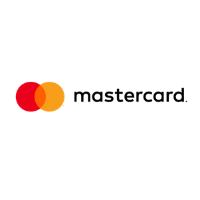
Mastercard
View Brand PublisherHow Mastercard is enabling growth in women-led small businesses through technology and skill development
Project Kirana leverages a tech-and-touch training methodology, engaging kiranas with peer-learning groups, video-based content, and in-person training.
Leela Mishra from Nishatganj, Lucknow got married at the age of 19 and decided to quit education to look after her family and children. Leela, lacking confidence, decided to complete her education and took up a teaching job at a school later. Juggling personal and professional life, she once again quit her job and decided to run a kirana cosmetic store, offering her more flexibility to take care of the business and family.
She managed to make sales of about Rs 500 per day and operated a tailoring business from within the kirana shop to earn additional income. For a woman living in rural India, running a business is not an easy task, but she found a ray of hope when an ACCESS Development Services Coordinator visited her store and recruited her into Project Kirana.
Launched by Mastercard and the United States Agency for International Development (USAID), Project Kirana is a business development and digital financial literacy accelerator programme exclusively for women micro-entrepreneurs. Implemented by ACCESS Development Services and DAI, this ambitious, gender-intentional programme aims to equip women-owned and -operated micro and small businesses with the digital tools and know-how they need to remain competitive and increase their income.
Project Kirana helped Leela to start maintaining records of her kirana store’s income and expenditures online. These records allowed her to manage her finances better and keep some money aside for herself. Moreover, the digital transactions record enabled her to avail a loan for her daughter’s wedding and her business.
Digitisation of women-led businesses
Leela’s story exemplifies courage and determination and proves that, if enabled with the right tools and support, women can empower themselves and their families. However, gender inequality issues around the country limit a woman’s ability to run their own business. To address the gaps women-entrepreneurs face today, Mastercard has introduced various initiatives to empower women businesses and enable their growth, including Project Kirana.
The programme leverages a tech-and-touch training methodology, engaging kiranas with peer-learning groups called BuddhiMoney Clubs, video-based BuddhiMoney content, and in-person training. BuddhiMoney is an animated female superhero created to teach, operate, and assist women business owners in managing their finances and using various digital tools to scale their business. BuddhiMoney, through short and fun videos, provides information on several important business aspects such as registering for Udyog Aadhar, using mobile banking and leveraging the digital economy. The two-year programme is being implemented in Lucknow and Kanpur and builds on Mastercard’s global experience working with small businesses to scale and improve their financial resilience.
Project Kirana is in line with Mastercard’s commitment to provide 25 million women entrepreneurs with solutions that can help them grow their businesses.
“There are approximately 6.3 crore micro, small, and medium enterprises in India out of which women run about 80 lakh businesses. Various studies suggest that women-led small businesses have a powerful multiplier effect on the economic growth of a community. We realize that women-owned businesses in India, especially small businesses, have tremendous untapped potential and thus initiatives like Project Kirana, amongst others, have been introduced to address the existing challenges such as lack of skills, knowledge, and access to credit. We aim to enable women entrepreneurs like Leela Mishra to grow and thrive,” said Vikas Varma, Chief Operating Officer - South Asia, Mastercard.
Empowering women entrepreneurs for inclusive growth
Millions of small-medium business owners and women entrepreneurs from rural areas are yet to use digital technology to its full potential. To ensure inclusive economic recovery from COVID-19, it is imperative to support them and facilitate access to skills and know-how combined with tools that are tailored to their unique needs. The right digital tools can help them overcome operational challenges and enhance their efficiency to further scale the business. This can in turn benefit the economy and encourage a larger section of society to use technology for the greater good.
The pandemic caused massive disruption for small businesses especially in the case of women entrepreneurs. A report by Bain and Company[1] reveals that almost 73 per cent of women-run enterprises in India were negatively impacted by COVID-19; while the revenue of almost 20 percent of women entrepreneurs fell to zero. Steep falls in customer demand, disrupted supply chains, and a lack of capital resulted in the shutdown of more and more women-led enterprises.
Moreover, the social norms in India consider taking care of the house and family as the primary responsibility of the women, which makes managing both home and business quite challenging. Consequently, women often miss the promising opportunities to run successful ventures as compared to men.
It is important to level the playing field for high-impact, employment-creating entrepreneurs, and support the willing business owners — to start, grow, and scale their enterprises. Thus, it becomes important for industry to work together to address inequality and exclusion – the biggest barriers holding women back. Programmes that offer a holistic knowledge base to women entrepreneurs, provide them information about networking, and access to mentorship and financing all in one place should be expanded and replicated.
“We believe that urgent collective action is needed to help women businesses go digital. At Mastercard, we understand the challenges faced by women entrepreneurs and we work closely with governments and local partners to find solutions that support their growth. By combining technology and partnerships, we strive to help women businesses overcome the hurdles that have plagued them for years. Through our India commitment of Rs 250 crore to support small businesses in India, we are working to empower women entrepreneurs with the right tools and support for their growth,” added Vikas.
1. https://www.bain.com/insights/can-covid-19-be-the-turning-point-for-women-entrepreneurs-in-india/







